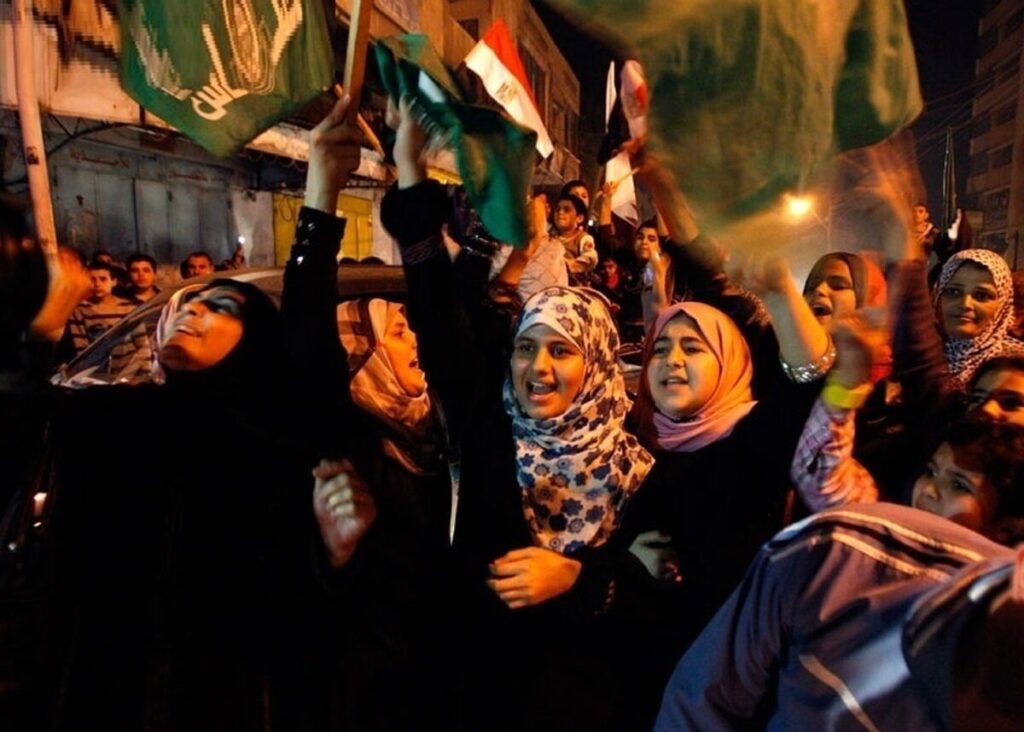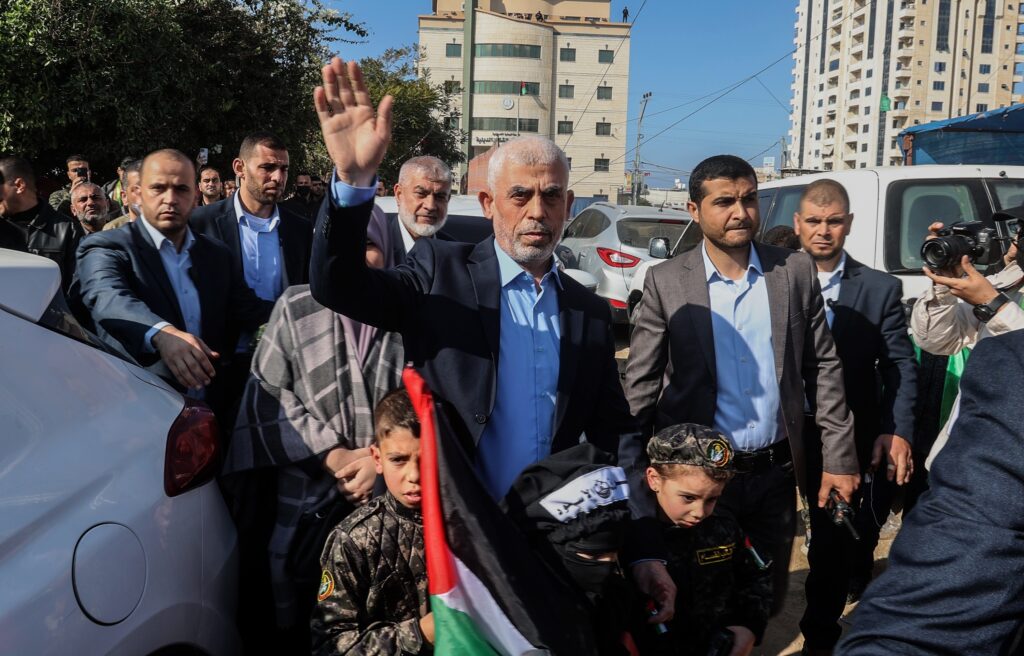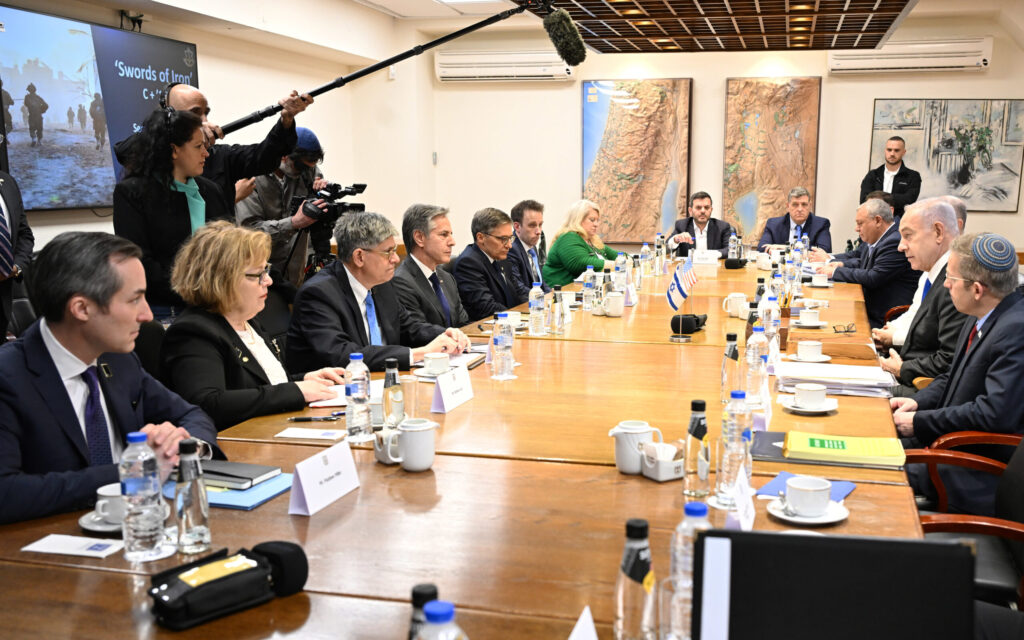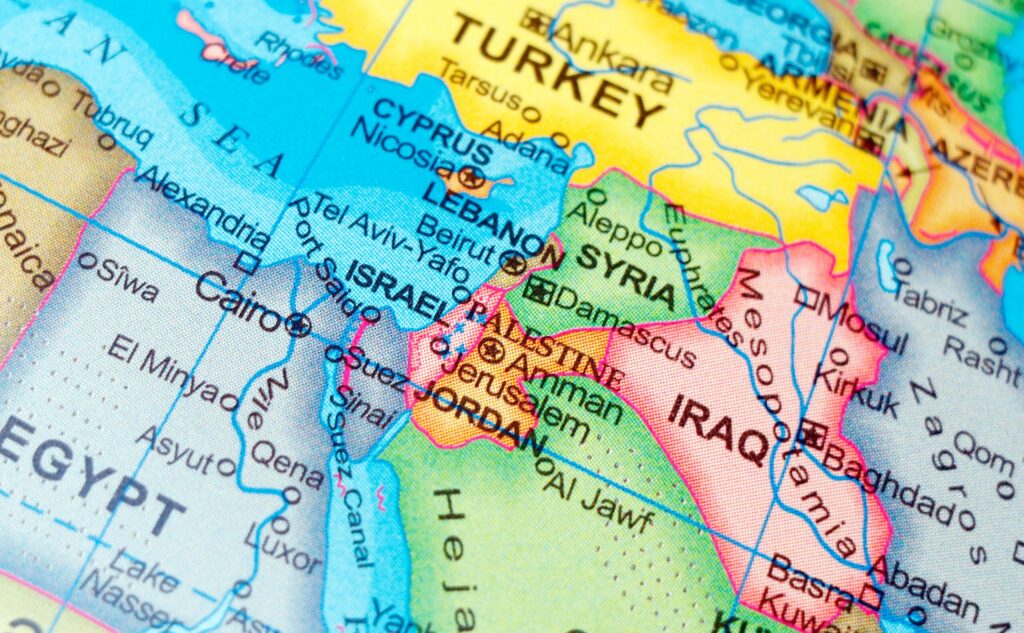UPDATES
Palestinian Society and September UN plans
Aug 12, 2011
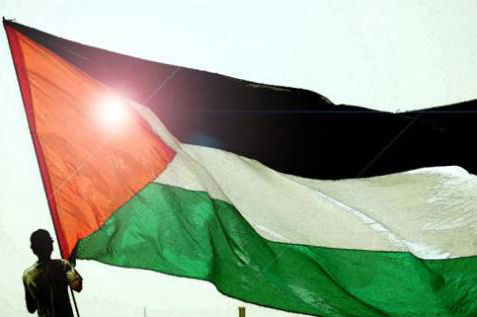
Update from AIJAC
August 12, 2011
Number 08/11 #04
There are reports that the Palestinian leadership is again sending out mixed signals about how determined they are to press ahead with controversial plans to seek to have a Palestinian state recognised by the UN next month.
This Update features some additional pieces on those Palestinian plans – with a special focus on analysis of the possible meaning and implications of those plans for Palestinian society.
First up is Canadian academic Gil Troy, who argues the September plans to some extent constitute a test of Palestinian society – and particularly whether they seek peace or Israel’s destruction. He says that the UN exercise will grant the Palestinians words that they want to hear, but will amount to the diplomatic equivalent of “crack cocaine”, a temporary high masking the harm actually caused. He details the history of the UN’s ugly destructive performance on Israeli-Palestinian issues since the 1970s and concludes, “Anyone who considers himself or herself ‘pro-peace’ should advise the Palestinians to turn away from the UN – and beg for the UN to stay out of the conversation.” For this argument in full, CLICK HERE. Meanwhile, American commentator Jonathan Tobin argues that the Palestinian UN plans amount to a bluff, which should be called by Israel.
Next up is noted American Middle East expert Jonathan Schanzer warning of considerable dangers of a violent “third intifada” breaking out following a UN declaration in September. He notes that Palestinian Authority leaders are pushing for mass protests which could easily turn violent, while radical groups such as Hamas and Islamic Jihad, as well as regional actors like Iran, appear to be hoping for violence and making preparations. He calls on those countries considering supporting a Palestinian unilateral declaration not to pour oil on the flames by creating unrealistic Palestinian expectations and frustration. For the rest of what Schanzer has to say, CLICK HERE.
Finally, on a separate but related note, Daniel Rubenstein, who writes about Palestinian affairs for the Jerusalem Report, discusses the evidence of continuing and widespread corruption within the Palestinian Authority in Ramallah. He reviews the history of that corruption, beginning under Yasser Arafat, the efforts to change the situation under current PA Prime Minister Salam Fayyad, and the failure of the bodies charged with rooting out corruption to charge or even name as under investigation any Palestinian officials. He notes that this reality is not only hampering Palestinian economic development, but embittering Palestinians and making them question the quest for statehood – especially when compared to the many corruption investigations and charges against senior Israeli figures. For this valuable piece on an important issue relating to the character of a future Palestinian state, CLICK HERE. One of the examples Rubenstein discusses is the case of the former Fatah Gaza kingpin, Mohammed Dahlan, who traded tit-for-tat corruption allegations with PA President Mahmoud Abbas – more on this is here.
Readers may also be interested in:
- A Hezbollah general explains how with Iran’s help, Hezbollah expects to destroy Israel.
- A report from Egypt of the military government, together with Islamic extremists, stoking xenophobia about foreign spies and agents, often directed at tourists (see here and here.).
- Some rare examples from the Saudi press of articles urging Arabs to copy the democratic, scientific and educational model of success set by Israel.
- More on Sinai becoming a lawless badlands dominated by smugglers.
- Some examples from the many stories and comments now appearing at AIJAC’s new daily “Fresh AIR” blog:
- The latest evidence of Hamas’ lack of any movement toward moderation.
- A post on what the Arab “Facebook revolutionaries” think of Israel’s social protest movement.
- Our latest “Media Week” analysis of Australian media coverage.
- A lovely little trick played on some German neo-Nazis.
Palestine Season at the UN will test Palestinians: Do they seek peace or Israel’s destruction?
Gil Troy
Jerusalem Post “Blog”
Tuesday Aug 09, 2011
This fall is going to be Palestine Season at the UN. The Palestinians seem set on winning a unilateral declaration of independence from the General Assembly, despite the Obama Administration’s efforts. No less ominous for Israel is the convergence of that process with Durban Three, celebrating the moment ten years ago – as it turned out, just days before September 11 — when a UN conference in South Africa against racism turned into an anti-Zionist and anti-Semitic hate fest.
In turning to the UN, the Palestinians will once again get words that please them, as the world’s totalitarian majority continues to dominate UN discourse. Yet this is the diplomatic equivalent of crack cocaine, providing a quick temporary high that masks the harm it actually causes. Since the mid-1970s, the UN’s anti-democratic and anti-Israel bias has made the world body an obstacle to Middle East peace, encouraging extremism, discouraging moderation, and making a two-state solution harder and harder to achieve.
Anyone who considers himself or herself “pro-peace” should advise the Palestinians to turn away from the UN – and beg for the UN to stay out of the conversation. Since November 10, 1975, when the UN passed General Assembly 3379, declaring Zionism to be racism, the UN has been the world center for anti-Israel and anti-peace radicals. Resolution 3379 in 1975 was the resolution that signified the UN’s surrender to Third World sensibilities and turned human rights talk against democracies. This was the resolution that soured Americans on their high hopes for the UN. And this was the resolution that made the UN a destructive, inflammatory force in the Middle East, rationalizing Palestinian terrorism, encouraging Palestinian rejectionism, and shifting the conversation from the post-1967 question of what boundaries Israel should have to the pre-1947 question of should Israel exist – a shift which has consistently weakened the pro-peace camp.
The delegitimizing, and ultimately exterminationist rhetoric of “Zionism is racism” repeatedly has trumped UN Security Council Resolution 242, the post-1967 diplomatic template seeking a compromise based on mutual recognition, compromise, and mutual respect. This “Big Red Lie,” as the former US Ambassador to the UN Daniel Patrick Moynihan called the Zionism is racism resolution, proved more potent than its Soviet creator. Despite the Soviet collapse in 1989, despite the UN formally repealing the resolution nearly twenty years ago in December 1991, the Zionism is racism resolution nevertheless has shaped the United Nations for a generation, especially after the Durban conference resurrected its message in 2001.
The Zionism is Racism resolution marked a turning point, the moment when many realized that during the 1960s and 1970s, an alliance of Third World and Communist countries had established an anti-Western majority in the UN. The institutional language shifted from championing individual rights to indulging national grievances, from aspirational to confrontational, from universal to categorical, from echoing America’s Declaration of Independence and the Constitution to sounding like a Soviet tract or a guerilla communiqué.
Branding Zionism as racism made Israel into what the Princeton University historian Bernard Lewis called a “fashionable enemy.” The Palestinian leader Yasir Arafat and his allies understood that beyond terror attacks and diplomatic moves, this was an ideological war. They needed to shape world public opinion. Exploiting the rise of a global mass media, and what the Palestinian academic Edward Said called the twentieth century’s “generalizing tendency,” the Palestinians transcended their local narrative of woe, framing it as part of a global struggle, no matter what the facts were. They invested heavily in research centers, think tanks, publishing houses to tell their story – and link it to broader trends. As a result, Said noted in 1979, “the Palestinians since 1967 have tended to view their struggle in the same framework that includes Vietnam, Algeria, Cuba, and black Africa.” Their new language of worldwide anti-colonial rebellion, of Third World solidarity, artificially shifted race to a more central part of the Palestinians’ story and rhetoric. Thanks to Said and others, “The Zionist settler in Palestine was transformed retrospectively and actually from an implacably silent master into an analogue of white settlers in Africa.”
In making this shift, calling Zionism “Racism,” Palestinian propagandists were resurrecting parts of Nazi ideology reinforced by Soviet anti-Semitism, while negating Jewish nationalism and people hood: To deny Jews’ claim to Palestine – and paint the Jewish state as a theocracy — propagandists denied Jewish people hood and Jewish ties to Eretz Yisrael, the land of Israel. In 1969, Arafat’s chief deputy Abu Iyad accused Zionism of “distorting and faking religious books to lead the Jews in all parts of the world into believing that their place is in the land of Palestine.” Beneath the intellectual veneer ran a pulsing vein of Jew hatred. Adolf Hitler’s manifesto Mein Kampf was required reading in some Fatah training camps, where former Nazis trained Palestinian guerillas.
“All this has nothing whatever to do with the rights and wrongs of the Arab-Israel conflict which, despite its bitterness and complexity, is basically not a racial one,” Bernard Lewis would explain. “It is no service to the cause of peace or of either protagonist to inject the poison of race into the conflict now.”
The history of this Big Red Lie exposes the hypocrisy of Palestinian diplomacy and UN posturing. If they want to continue their assault on Israel, Palestinians should return to the poisoned well of the General Assembly. If they seek peace, they should return to negotiations with an Israeli government which has already acknowledged the principle of two states for the two nations in love with the same land. This September, therefore, is not a test of Israel or Israeli diplomacy. It is a test of Palestinians and Palestinian intentions – do they seek more empty rhetorical wins or genuine progress? Do they seek compromise or Israel’s destruction?
Gil Troy is Professor of History at McGill University and a Shalom Hartman Research Fellow in Jerusalem. The author of “Why I Am A Zionist: Israel, Jewish Identity and the Challenges of Today,” and six books on the American presidency, he is currently writing “The Big Red Lie: Daniel Patrick Moynihan, Zionism is Racism, the fall of the UN and the Rise of Reagan.” giltroy@gmail.com
Back to Top
————————————————————————
The next intifada
Back to Top
————————————————————————
The stink of corruption in Ramallah
By DANIEL RUBENSTEIN
Jerusalem Report, 08/04/2011 13:48
Endemic corruption and the government’s poor response weakens the Palestinians’ national efforts
BERNARD LEWIS, THE well-known British Middle East scholar, once explained the difference between corruption in the West and corruption in the Middle East.
In the US, Lewis said, you first have to make a lot of money, like Rockefeller or Kennedy, with that money you conduct an election campaign and then you win control over the government. In the Middle East, the process goes in the opposite direction. First of all you grab control of the country, like Gaddafi in Libya, Ben Ali in Tunis, Mubarak in Egypt or Saddam Hussein in Iraq; once in power, you make a lot of money.
And in Israel? he was asked. In Israel, he answered, they’ve found a way to combine the two.
And the Palestinians? Even a quick glance at the government in Ramallah will reveal that the Palestinians have adopted, more or less, the Middle Eastern approach.
In the past, much was made of Yasser Arafat’s private accounts and the millions that he had given his wife, Suha. It was clear that Arafat controlled the Fatah, later the PLO and then the Palestinian Authority as if they were his private plantation.
About a year ago, after a wave of whispers and rumors of corruption had swept the Palestinian Authority, President Mahmoud Abbas declared that he was establishing a new office in Ramallah, a comptroller of sorts, to be known as the “Committee to Eradicate Corruption.” Rafiq Natshe, a Fatah veteran and former ambassador to Saudi Arabia, was appointed to head the new unit.
Recently, after journalists from the Palestinian news service, Ma’an, demanded that the committee reveal names and details about suspects, the committee revealed that it is investigating four government ministers, including, most prominently, Minister of the Economy Hassan Abu-Libdah (who is incidentally responsible for the campaign to boycott products from the Israeli settlements).
The charges against him stem from the period before he became a minister and was the director general of the Palestinian stock market in Nablus. He is being investigated with regard to falsification and stock manipulation.
The other suspects include the Agriculture, Health and Justice ministers.
There aren’t any indictments yet – and the Palestinian public is doubtful that there every will be any. At most, common wisdom holds, a minister or two will have to resign.
ALLEGATIONS OF CORRUPTION concerning Mohammed Dahlan, a prominent member of the Fatah leadership, first came to the public’s attention a few months ago. Dahlan, who was once the strong man in the security apparatus in Gaza, fled Gaza with his men in 2007 as Hamas took power.
He moved to Ramallah; gradually it became apparent to all that he had become enormously wealthy. He was involved in a series of business deals with Mohammed Rashid, who had been Arafat’s financial adviser and his confidant when the PLO headquarters were in Lebanon. Rashid had been responsible for the PA’s government companies and had been responsible for the casino in Jericho, which brought a fortune into the PA.
Rumors had been circulating in Ramallah for years about Dahlan’s and Rashid’s partnerships in ventures in Jordan, North Africa and the Persian Gulf. Recently, Dahlan had fallen out of favor with Abbas, who accused Dahlan of undermining him. Several months ago, Dahlan published several articles in the Palestinian media, criticizing Abbas’s policies; he was called in for clarifications and was summarily expelled from the PLO Central Committee.
Dahlan has been forced to leave Ramallah, with Abbas threatening to expose damaging information about him. In turn, Dahlan, who spends most of his time in Cairo and Amman, has let it be known that he, too, can open his mouth and provide similarly damaging information about Abbas.
Things seem to have settled down since then. Common wisdom on every street corner in Ramallah has it that the potentially damaging information that Dahlan and Abbas have on each other – and the fact that both of them are willing to use it – is keeping both of them quiet.
The story is important because of its social and political significance. Palestinian public opinion is regularly full of countless rumors and gossip about all the leaders, who are all reputed to be little more than corrupt thieves.
In response to each new wave of rumors, the PA establishes a committee of inquiry – and that is the end of that. These committees of inquiry are established solely in order to bury the stories. And with regard to Dahlan, it wasn’t even necessary to establish a committee – the mutual threats between him and Abbas did the job quite well.
WHILE IN ISRAEL, A SIGNIFIcant number of cabinet ministers and other senior officials have made their way to prison, in the PA, not even one senior official has ever been tried or sent to prison. Here and there, one or two officials, including Jawad Ghosein, head of the PLO treasury, have been arrested and briefly interrogated.
But nothing more.
Anyone with any complaint or information about corruption may turn to the anti-corruption committee, which is then supposed to investigate and report to Abbas himself.
Every so often, the committee announces to Palestinian media that it is working intensely and has achieved impressive results. In one such press release a few months ago, the committee stated, “We have returned to the PA thousands of dunams of land that had been illegally taken over by various individuals and we have returned millions of dollars to the PA treasury.” In another such announcement, the committee declared that it has been aided by Palestinian embassies throughout the world in its efforts to investigate ex-pat Palestinians who have been involved in financial corruption.
“We could not bring the suspects to Ramallah for investigation, because we do not have extradition agreements with foreign countries,” the committee explained.
But the Committee to Eradicate Corruption never provided any details about the corruption or the name of even one suspect.
It is thus fairly clear that these meaningless announcements were intended merely to assuage the public.
In the past, Arafat used the money he accumulated for political purposes: to bribe and to buy support. He didn’t enjoy the money in his private life – he didn’t live in fancy houses and he often slept in his office; his lifestyle was Spartan, almost monastic. He wore old army fatigues, ate simple meals and even though he had millions of dollars in bank accounts on his name, he almost never bought anything for his personal use.
But the same cannot be said for the people around Arafat. They enjoyed the money that he gave them. And biographies about Arafat reveal that he actually loved corrupting those people who surrounded him, so that he could highlight how uncorrupt and upstanding he was and so that everyone could see that in contrast to other leaders, he, and only he, was clean.
The system that Arafat instigated in the PLO encouraged corruption. He would allocate a specific sum of money to each of the heads of the departments, and that official was responsible for enlisting their personnel and paying them as they saw fit. In the beginning, the PA operated in the same way. The head of the security apparatus, for example, would be allocated a certain budget, which he would spend as he saw fit on activities, equipment and salaries; there was little or no oversight.
The police officers received their salaries in envelopes, in cash payments, directly from their superior officers, instead of direct deposits into their bank accounts.
Gradually, the system changed, primarily as a result of pressure from the countries that were contributing money to the PA. Prime Minister Salam Fayyad completed the process of reorganization and created order in the Palestinian bureaucracy. The situation today may still not be perfect, but there’s no doubt that the corruption has decreased.
Yet even today, the comptroller’s office and the legal system in the PA are very weak and barely function, The gossip and rumors about corruption among senior Palestinian officials does terrible damage to the Palestinian sense of solidarity and to the national morale. The lack of confidence in their leaders is especially striking given the current economic difficulties.
Despite all the improvements, the economic situation in the territories is still very bad.
Unemployment is high, there are almost no investments, and no one is building any new factories or industries. No one wants to invest in an unstable political and security environment.
The Palestinian public looks across the border with Israel and sees a thriving economy.
The average yearly income in the West Bank and Gaza is about $3,000 – in Israel, it’s close to $30,000. That’s ten times higher. And the PA doesn’t always pay even the lowly salaries – about $250 a month – of teachers and police officers. Last June, the Palestinian Finance Minister announced that he would pay only half of the salaries owed, because the Arab countries had not transferred the funds they had promised and so there was not enough money in the treasury to pay full salaries.
Every day, the Palestinian press publishes two or more pages of translations from the Israeli press, so they see how Israel deals with government corruption. They see and hear about a former prime minister who is now on trial, and about a former president who has been convicted and sentenced to prison because he took advantage of his position and authority for sex. The Palestinians are frustrated and bitter – and that certainly is not helping them in their struggle for recognition and establishment of their state.
“Who needs a state with leaders who only want to steal?” a Palestinian colleague commented recently. He may not represent the majority of the Palestinian public, but he’s not alone in his thoughts. Similar comments can be heard throughout Ramallah, Nablus, Hebron and Gaza.
Tags: Palestinians








